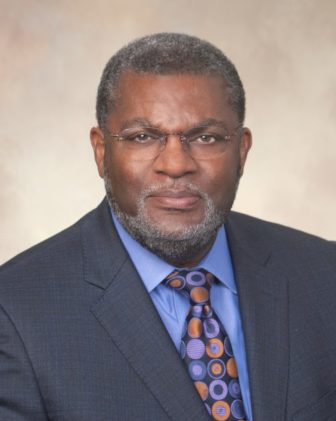

HOPE Enterprise Corporation
Bill Bynum, CEO of HOPE Credit Union
ITTA BENA — When the coronavirus pandemic hit, pre-existing health, education, housing, and economic conditions amplified the impact on the country’s most vulnerable people, including those living in the southernmost region — particularly the Mississippi Delta.
Bill Bynum, CEO of HOPE Credit Union, a member-owned financial institution that provides banking, loans, and financial resources, said his organization wasn’t surprised that a disproportionate number people of color tested positive and died from COVID-19. In addition to that, the economic impact of the pandemic hit low-income Black workers even worse.
“The service and retail industry is one of the hardest hit sectors of the economy and many people of color are employed in that sector, whether its health conditions or economic conditions, people of color, low income people are more fragile,” Bynum said.
While many rural people lost their jobs and economic viability as a result of COVID-19, HOPE provided payment flexibility and financial resources to some of them. With a $10 million deposit from Netflix, the credit union looks to do even more by bringing wealth into places like Itta Bena. Over the next two years, HOPE said the Netflix funds will support financing to more than 2,000 entrepreneurs and homebuyers of color.
A part of its $100 million commitment to bring capital into Black communities across the country, Netflix announced Tuesday its investment in HOPE Credit Union in the form of a Transformational Deposit. What this means is that Hope will “reimport capital into these capital starved communities,” Bynum said.
For example, HOPE is the only financial institution in Itta Bena – a town of more than 1,800 with a median household income of about $19,000. To support small businesses, housing, home or car ownership, the community needs more money coming in.
“The total potential deposit in the entire town from its residents is a little over $1 million, that is not enough to support the development needs in that communities whether its small business, homeowners, families who have need to buy a car or need of an emergency, you typically go to a bank,” Bynum said. “But when the community like Itta Bena has so little wealth, they don’t have the ability to save and put deposits in a local financial institution.”
After conversations around diversity and inclusion in April, Aaron Mitchell, director of talent acquisition at Netflix, spearheaded the initiative to help Black-owned and Black-led banks, credit unions, and financial organizations.
As a result of Bynum’s relationships with senior executives at Netflix, he spoke with Mitchell, who determined HOPE was a “solid investment.” The deaths of George Floyd in Minnesota, Breonna Taylor in Kentucky and Ahmaud Arbery in Georgia heightened Netflix’s focus to invest in Black communities, Bynum added.
Compared to 9 percent of white households, 19 percent of Black families have no assets or negative wealth, Mitchell and Shannon Alwyn, treasury, wrote in a joint blog post.
“We believe bringing more capital to these communities can make a meaningful difference for the people and businesses in them, helping more families buy their first home or save for college, and more small businesses get started or grow,” they said.
With the $10 million, HOPE plans to continue to close the racial wealth gap in rural communities, communities of color, and low-income communities across the South.
“We believe at HOPE that whether you’re trying to close education gaps, housing gaps, make sure communities have grocery stores that sell healthy food, improve housing conditions, at some point all of those needs require capital,” Bynum said. “We help to address these conditions by providing affordable, responsible financial services that more wealthy, more prosperous, more majority white communities take for granted but are absent in the communities we serve.”
The post Bill Bynum: Netflix’s $10 million investment will help HOPE close state’s wealth gap appeared first on Mississippi Today.
- Patients face canceled surgeries and delayed care amid UMMC cyberattack - February 20, 2026
- Goal is ‘better alignment, not bigger government’ for Mississippi tourism - February 20, 2026
- Challenging work hours, transportation, and child care continue to be workforce barriers in the Delta - February 20, 2026